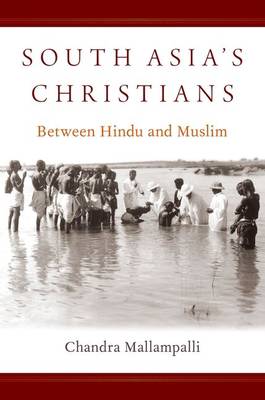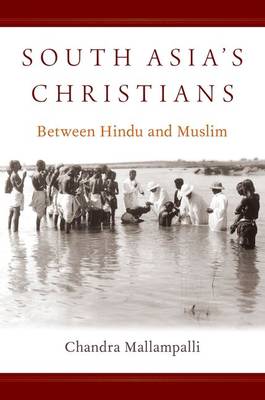
- Retrait gratuit dans votre magasin Club
- 7.000.000 titres dans notre catalogue
- Payer en toute sécurité
- Toujours un magasin près de chez vous
- Retrait gratuit dans votre magasin Club
- 7.000.000 titres dans notre catalogue
- Payer en toute sécurité
- Toujours un magasin près de chez vous
Description
South Asia is home to more than a billion Hindus and half a billion Muslims. But the region is also home to substantial Christian communities, some dating almost to the earliest days of the faith. The stories of South Asia's Christians are vital for understanding the shifting contours of World Christianity, precisely because of their history of interaction with members of these other religious traditions. In this broad, accessible overview of South Asian Christianity, Chandra Mallampalli shows how the faith has been shaped by Christians' location between Hindus and Muslims. Mallampalli begins with a discussion of South India's ancient Thomas Christian tradition, which interacted with West Asia's Persian Christians and thrived for centuries alongside their Hindu and Muslim neighbours. He then underscores efforts of Roman Catholic and Protestant missionaries to understand South Asian societies for purposes of conversion. The publication of books and tracts about other religions, interreligious debates, and aggressive preaching were central to these endeavours, but rarely succeeded at yielding converts. Instead, they played an important role in producing a climate of religious competition, which ultimately marginalized Christians in Hindu-, Muslim-, and Buddhist-majority countries of post-colonial South Asia. Ironically, the greatest response to Christianity came from poor and oppressed Dalit (formerly "untouchable") and tribal communities who were largely indifferent to missionary rhetoric. Their mass conversions, poetry, theology, and embrace of
Pentecostalism are essential for understanding South Asian Christianity and its place within World Christianity today.
Pentecostalism are essential for understanding South Asian Christianity and its place within World Christianity today.
Spécifications
Parties prenantes
- Auteur(s) :
- Editeur:
Contenu
- Nombre de pages :
- 368
- Langue:
- Anglais
- Collection :
Caractéristiques
- EAN:
- 9780190608903
- Date de parution :
- 17-02-23
- Format:
- Livre relié
- Format numérique:
- Genaaid
- Dimensions :
- 242 mm x 160 mm
- Poids :
- 656 g







